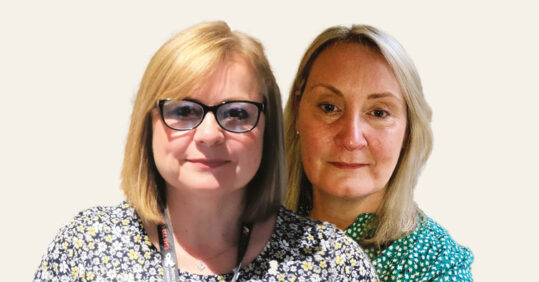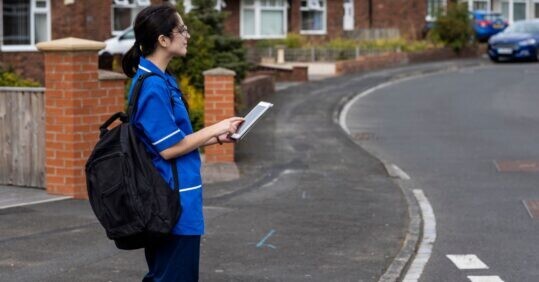Why we need to save our health visitors

The first five years of a child’s life are vital in helping to set them on the path to a long and healthy life. Health visitors are at the forefront of this work, visiting families in their homes, and carrying out health checks and assessments on children up to the age of five, monitoring their physical and emotional health and development.
Recentlwe, I have heard of several local authorities – such as Stoke-on-Trent and Hampshire – are considering cutting the number of staff in children’s specialist nursing in a bid to save money. This includes health visitors. They provide a vital service for families, but what do we do if there are fewer health visitors? We must not allow these services to disappear.
Health visiting is an area of nursing that is already suffering from a staffing crisis. According to data from NHS Digital published in February 2021, the number of health visitors in England has fallen by 3.4% compared to last year, and by 18.6% compared to September 2009. It is an incredibly rewarding career, and it brings the perfect opportunity to shape the lives of children and families for the better and we need more people to follow this career path.
Related Article: QICN bids farewell to Dr Crystal Oldman as she retires from CEO role
The pandemic has been tough for people of all ages, but we will not know for some time the impact it has had on the long-term health outcomes of children. One thing we do know already, through an Ofsted report from November 2020 on early years provision, is that some children have regressed in their development due to being isolated from their peers. Some struggle to concentrate on play and other activities after becoming used to too much screen time; others have lost social skills and the concept of ‘playing nicely’.
The role of a health visitor extends beyond just the child, to the wider family, mothers and fathers and other siblings. It can be hard when you have a new baby to know what to do for the best – particularly if it is your first child. Health visitors can offer advice to new parents, whether that is about breast-feeding, appropriate play or supporting siblings in adjusting to a new baby in the house.
Nicola Rooke, a Flying Start health visitor in Wales, told us: ‘I work with families that are considered vulnerable and I provide more intensive support. One mum had quite severe post-natal depression so I helped her to book a GP appointment and made sure she had access to community nursery nurses who could help her with play and stimulation for her child, as well as a speech and language programme.’
The pandemic has been a tough time for families with new babies. Cut off from the usual parent and toddler groups, as well as their own relatives, and so health visitors have become even more important.
Nicola adds: ‘We’ve been visiting throughout the pandemic and signposting new parents to different resources and online groups. My role has been so valuable in helping new parents who might be isolated from their families. I make sure I spend time with them; that way I can build a relationship with them, so they feel able to talk to me when they need to. It’s important to listen to what you’re being told without judgement, but also to read between the lines and have empathy.’
Related Article: England’s domestic supply of learning disability nurses projected to end by 2028
Ensuring that children are happy and developing as they should, means they can go on to have a long healthy life, free from any avoidable long-term chronic health conditions.
That is why it is so refreshing to see support from the Duchess of Cambridge for early years care.
By launching The Royal Foundation Centre for Early Childhood, she has highlighted the importance of giving children a good start in life. In its inaugural report ‘Big Change Starts Small’, the Foundation talks about the importance of healthy child development, physically, mentally, and emotionally.
Children have lost vital time in their development during the pandemic, and we know it could be a struggle for them to catch up.
Related Article: Not enough specialist nurses to provide palliative care in rural communities
Off the back of this, we need to see early years care become a priority for the government to help them regain the ground they have lost and set them up for a happy, healthy future. Professor Sir Al Aynsley-Green in his book, The British Betrayal of Childhood, sets out strong reasoning for why we should be investing in early years and the potential for the upstream work of health visitors to have positive longer-term impact.
Making cuts in health visiting service is short sighted and could create future health and economic challenges.

See how our symptom tool can help you make better sense of patient presentations
Click here to search a symptom




